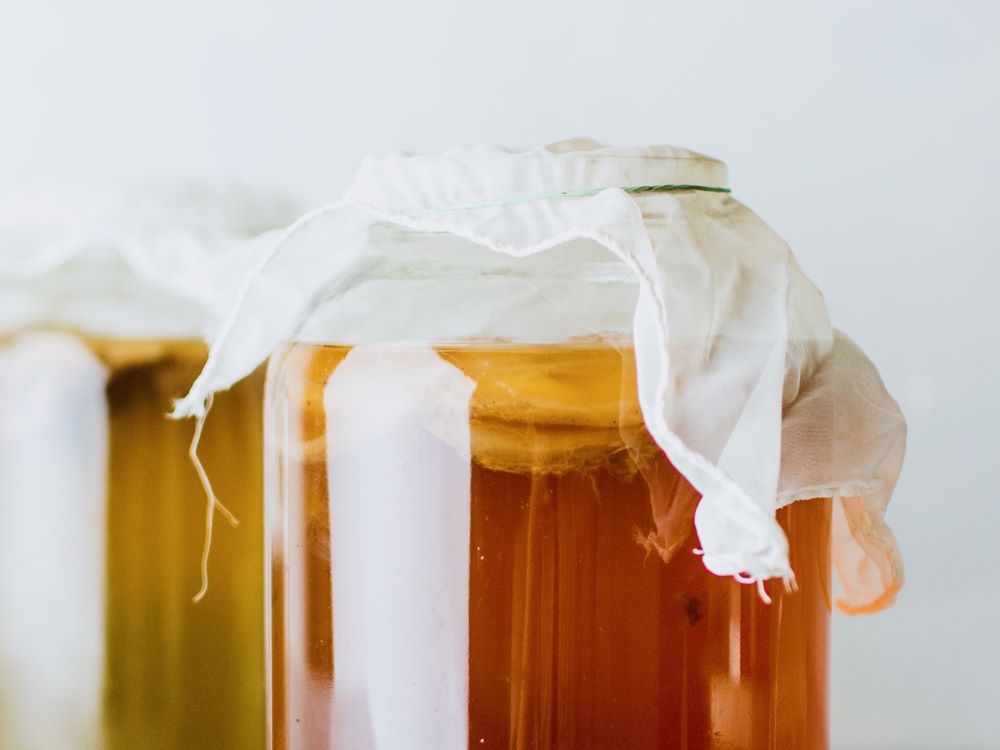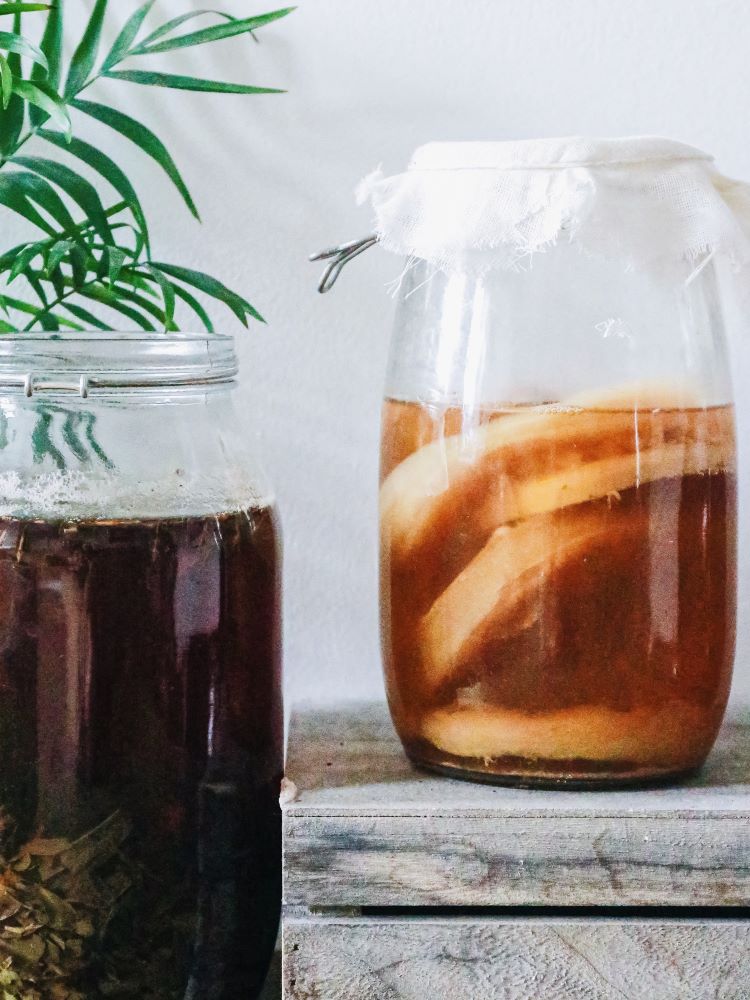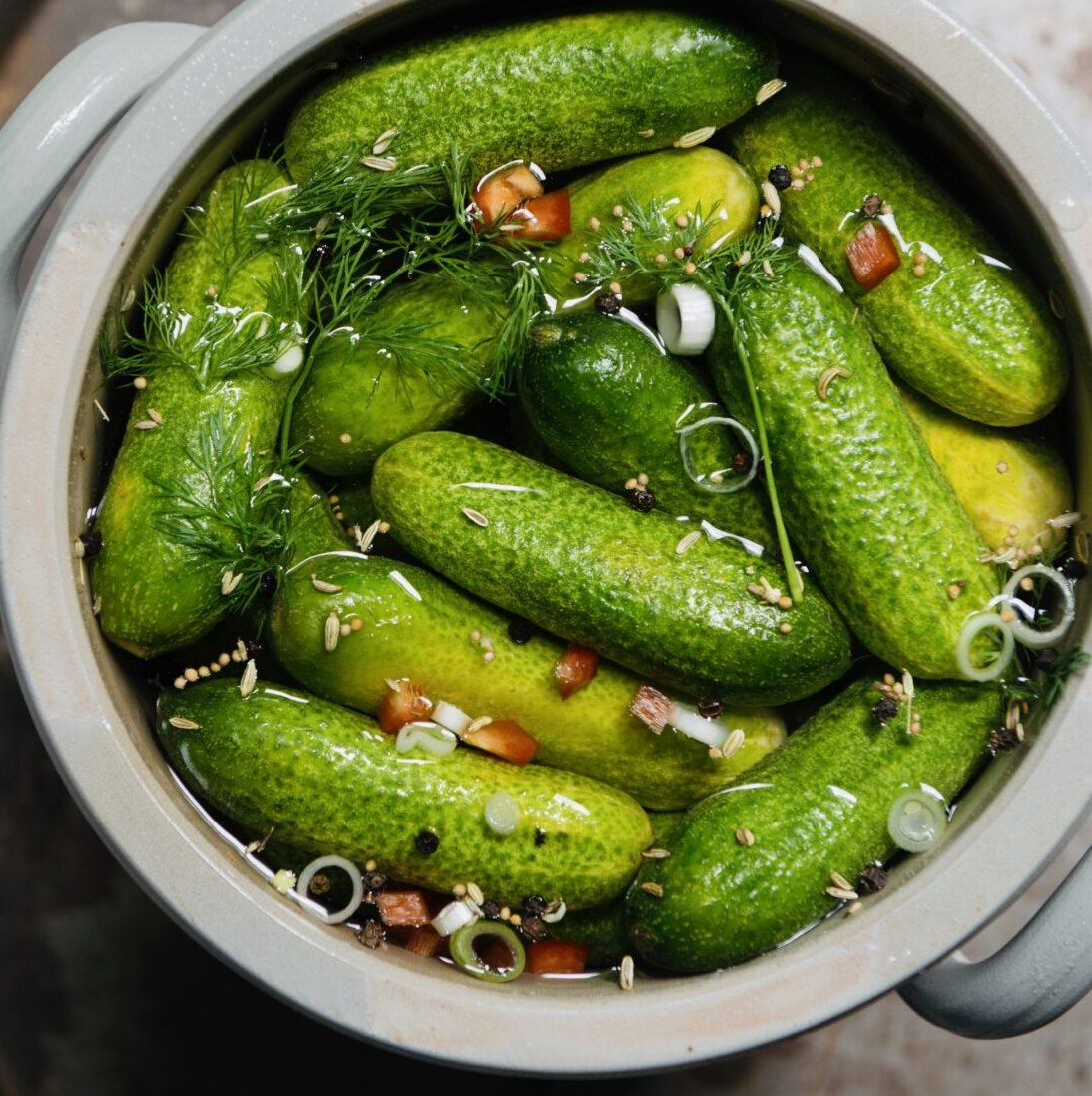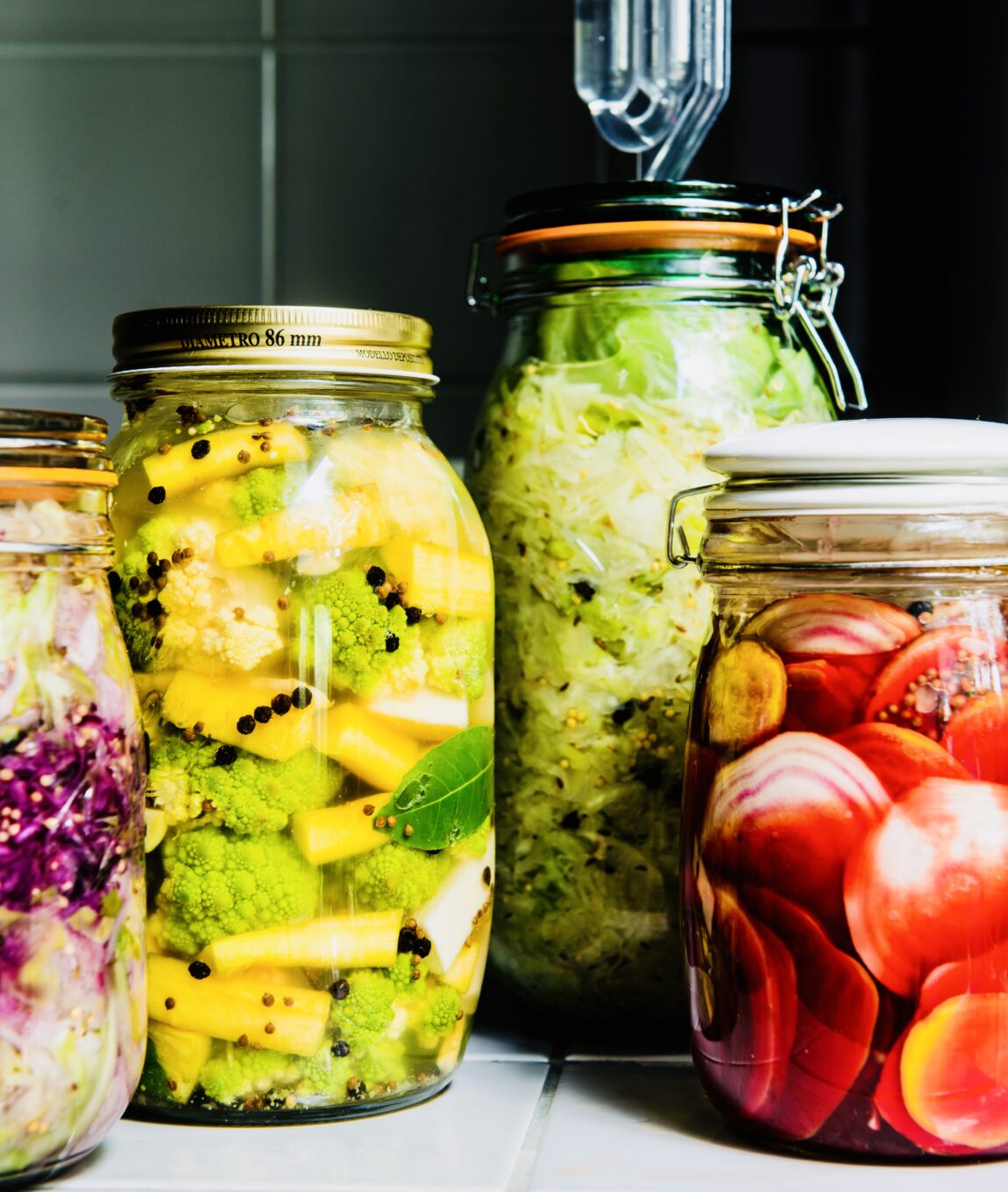Kombucha: A Fermented Miracle Drink or Just Delicious (Plus a Recipe)
Category: fermentation,Learn
Kombucha, a fermented tea-based soft drink, is getting a lot of attention from the health and wellness community. But what exactly is it, and is it really as healthy as people claim? Or are there even risks associated with drinking kombucha? In this article, you’ll read what the science really says about the health effects of kombucha, and we’ll end with a recipe to easily make kombucha yourself.
What is kombucha?
For starters, what is kombucha anyway? Kombucha is a slightly fizzy, fermented drink made from black or green tea, sugar, and a symbiotic culture of bacteria and yeasts.
This symbiotic culture is also called a SCOBY. This English abbreviation stands for Symbiotic Culture of Bacteria and Yeast. This unique combination of microorganisms creates a fermentation process that converts sugar into acetic acid, other organic acids, carbon dioxide and sometimes a small amount of alcohol, which gives kombucha its distinctive taste and properties.

The history of kombucha
Although the exact origins of kombucha are shrouded in mists, it is believed that the drink originated in East Asia thousands of years ago, possibly in China or Russia. It was traditionally valued for its supposed health benefits and spread around the world through trade routes and cultural exchanges. Today, it is even found in many supermarkets.

What does kombucha taste like?
Kombucha has a unique and complex flavor that varies depending on the fermentation time and added ingredients. It is basically a slightly effervescent beverage with a distinctive acidity, thanks to fermentation by the symbiotic culture of bacteria and yeast.
The taste can range from slightly sweet to sharp and vinegary. Green tea kombucha tends to have a fresher, more subtle flavor, while black tea kombucha tends to be richer and more robust. Fermentation time affects the intensity of the acidity; the longer the fermentation, the more acidic the drink. Fruit, herbs or other flavorings are often added, further enriching the flavor with notes of citrus, berries, ginger or other spices, making each batch unique.
Is kombucha healthy? Let’s talk about science first.
There are very many health claims surrounding kombucha. Those claims range from improved digestion and immune system support, to helping with weight loss, skin improvement, shiny hair and even preventing or curing serious diseases like cancer. What is true about any of this?
A lot of the claims surrounding kombucha are based on anecdotes, in the category of “I know someone who, since she’s been drinking kombucha, no longer suffers from X, Y or Z.” But, as the saying goes, “the plural of anecdote is not ‘data.’ The fact that many people claim something does not mean that it has been proven thereby.
In recent years, there has been a lot of scientific research on the health effects of kombucha, but much of this research is still at the test tube and laboratory animal stage. While this research is important, and interesting findings are being made, the results cannot be applied 1-to-1 to humans. Humans are not mice. That requires so-called clinical studies, preferably with large groups of participants. There are hardly any of those yet. Not so long ago, in 2019, researchers searched the scientific literature for all studies on the health effects of kombucha on humans, to list the results.
It turned out there were 0.

Risks of drinking kombucha
Although kombucha is generally considered healthy, side effects such as stomach upset, allergic reactions, dizziness and kidney failure are sometimes reported. Drinking too much kombucha, especially if you let kombucha get very sour can be bad for your tooth enamel.
It is also important to be aware of the possible risks of homemade kombucha, including the possibility of contamination or the development of harmful bacteria if the brewing process is not followed closely. We therefore recommend always making kombucha with a tested SCOBY.

Conclusion
Kombucha contains a wide range of organic acids, polyphenols, vitamins and other bioactive compounds, the concentration of which can be modified by adjusting the tea used and the fermentation process. So, it has a lot of potential to be healthy. But, due to the lack of human studies, certainty about the benefits of consuming kombucha remains limited.
Frequently asked questions about kombucha and health.
Here’s some questions we often get about kombucha and health. If you have any that aren’t answered below, post them in the comments and we’ll add them.

How to make kombucha at home
Making kombucha at home is a simple but painstaking process.
1. Preparation: Combine 1 liter of water, 5-6 tea bags (black or green tea) and 100 grams of sugar in a large pot.
2. Bring to a boil, then let it cool to room temperature.
3. Adding SCOBY: Add a pellicle along with about 100 ml of already fermented kombucha (the SCOBY).
4. Fermentation: Cover the jar with a breathable cloth and let it ferment for 7-10 days at room temperature, out of direct sun.
5. Tasting and Bottling: After 7 days, taste the kombucha. If it is to your liking, you can strain and bottle it.
6. For an extra flavor dimension, add fruit or herbs and let it ferment for 1-7 more days in sealed pressure resistant bottles.
Start making kombucha, safely
Want to start making kombucha? Check out our selection of kombucha making ingredients, tools and courses!
Want to learn more? Take our comprehensive vegetable fermentation course
Safely and creatively
In 30+ bite sized English spoken video lessons you will learn all about making fermented vegetables at home, without the need for special tools.
- Learn to ferment all vegetables
- Save money, by never having to buy fermented vegetables again
- Incite your culinairy creativity
- Promote your probiotics
- Many free bonusses: including a FREE bonuscourse: the basics of fermentation.
by Fermentation fundamentals
This course is part of our Fermentation Fundamentals education program.

About the author (Meneer Wateetons)
Meneer Wateetons (a pseudonym derived from the name of his blog, which literally means ‘Mr. what-eats-us’) is a renowned Dutch food writer, PhD scientist, teacher, fermentation expert, sausage maker, and the owner of startercultures.eu. He has written nine books on culinary topics such as fermentation, alcohol production, sausage and charcuterie making, and deep-frying. Through his books, (online) courses, and corporate trainings, he has shared his knowledge with countless hobby cooks, chefs, and food professionals. Learn more about Meneer Wateetons.
Related Posts

How to make cheese (including a recipe)
How do you make cheese? In this blog post we will teach you the basics of cheese making, including a recipe for your first Gouda style cheese!

How to make your own real fermented pickles
Learn how to make your own crunchy fermented pickles. Easy recipe with tips, variations, and answers to common questions.

How to Ferment Vegetables: A Beginner’s Step-by-Step Guide
Learn the simple art of vegetable fermentation. This guide covers the science, the right salt ratio, and includes an easy sauerkraut recipe to start your first successful ferment today.




